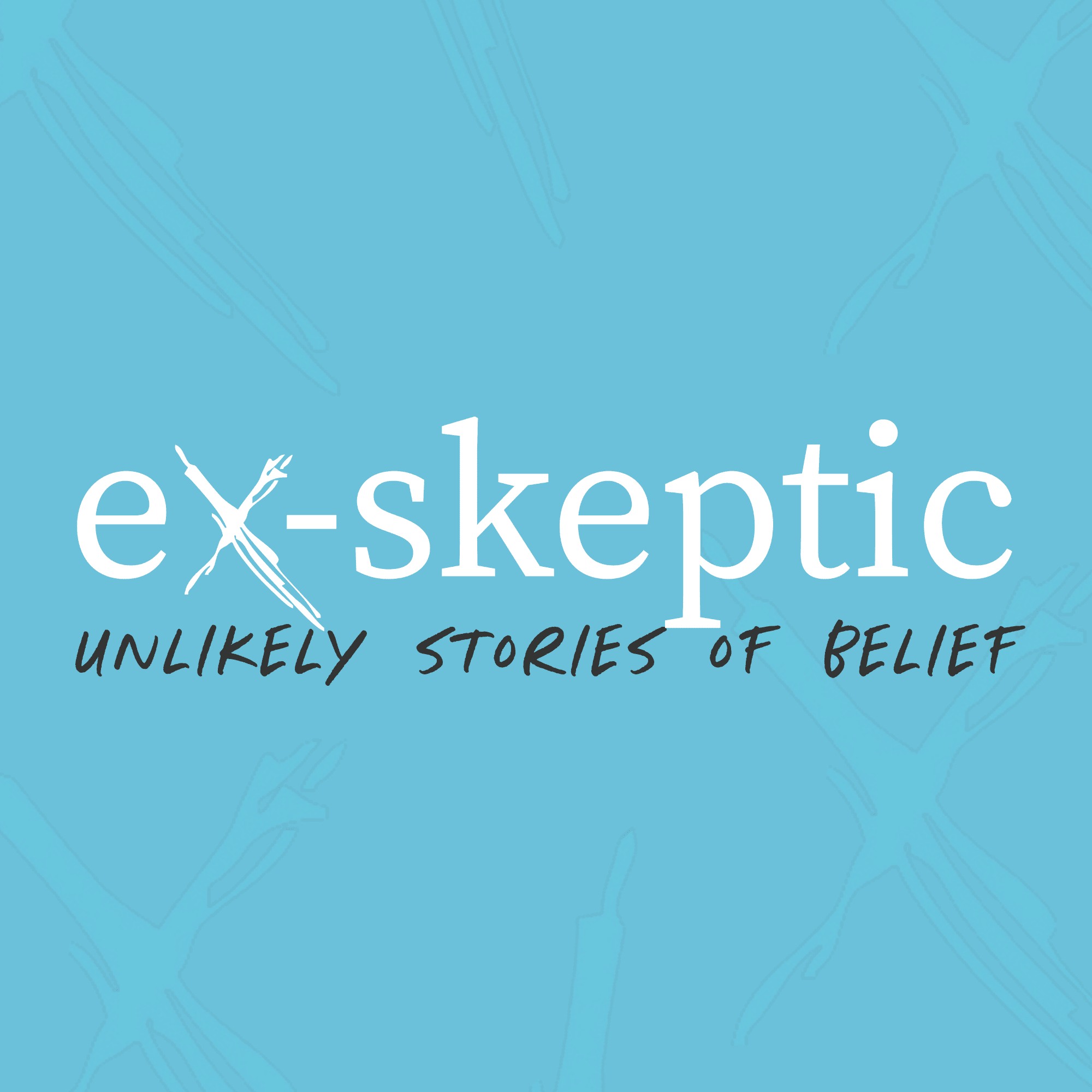

eX-skeptic
Jana Harmon
eX-skeptic is a story-driven, conversational podcast that helps listeners understand why people dismiss or believe in God and Christianity. Interviewing one former atheist or skeptic each show, host Jana Harmon encourages both Christians and skeptics to consider what motivates thoughtful, intelligent people to move from disbelief to belief.
www.exskeptic.org
www.exskeptic.org
Episodes
Mentioned books

Aug 2, 2024 • 1h 17min
Excluding God – Dr. Dan Mizell’s Story
Former atheist Dr. Dan Mizell left Christianity and embraced science as the most rational way to understand and live in the world. Over time, he began to question whether the natural world was sufficient to explain reality. His search for answers led him to a more solid foundation for knowledge, ethics, and life in God.

Jul 19, 2024 • 1h 13min
Longing for More – Nate Sala’s Story
Nate Sala rejected his parents’ faith tradition of Christianity and pursued life on his own terms, but his life failed to bring satisfaction to his deepest longings. His search led him to find all that he desired in God.
Nate's Resources:
YouTube: YouTube.com/wisedisciple
Summit Ministries: https://www.summit.org/
C.S. Lewis Institute's Study Courses

4 snips
Jul 5, 2024 • 60min
Returning to God – Melanie Beerda’s Story
Although Melanie Beerda was raised in a Christian family, her life experience alienated her from the concept of a loving God. After leaving Christianity to go her own way for several years, she finally discovered the loving God who had been there for her all along.
Melanie's Resources:
https://www.melaniebeerda.ca
Rekindled Faith with Melanie Beerda podcast
apologeticscanada.com
The AC Podcast (Available on Spotify and Apple)

Jun 21, 2024 • 1h 3min
Struggling with Doubt – Dr. Keith Hess’s Story
Keith Hess grew up in a Christian family but began to question whether or not what he believed was real or true. His doubts went unanswered for years until he was finally introduced to solid reasons for belief. Now a professor of philosophy and apologetics, Dr. Hess helps others find answers to the big questions of God and life.
Resources Mentioned by Keith:
J.P. Moreland, Love Your God with All Your Mind
William Lane Craig, The Son Rises
William Lane Craig, The Cosmological Argument from Plato to Leibniz
Lee Strobel, The Case for a Creator
Robin Collins, “The Fine-Tuning Design Argument: A Scientific Argument for the Existence of God” essay
Gary Habermas and Michael Licona, authors on the resurrection of Christ

6 snips
Jun 7, 2024 • 1h 8min
Searching for the Real God – Carrie Sheffield’s Story
Former skeptic Carrie Sheffield suffered abuse at the hand of her religious father and developed a skewed view of God. After years of questioning and searching, she finally found the unconditional love of God.
Resources Mentioned by Carrie
Counterfeit Gods by Tim Keller
Screwtape Letters by C.S. Lewis
Works of Deepak Chopra
Resources by Carrie
Book: Motorhome Prophecies
Website: https://carriesheffield.com/

May 24, 2024 • 57min
Searching for Truth – Dr. Kirk Shanahan’s Story
Chemist and former atheist Dr. Kirk Shanahan began to see science's inability to answer big questions of life and the universe. It opened him up to the search for truth and the possibility of God.

May 10, 2024 • 1h 3min
Experiencing the Miraculous – Dave Rankin’s Story
Former atheist Dave Rankin's difficult life experiences proved to him that God could not exist. Through his years of atheism, other surprising experiences awakened him to the possibility of something more than his atheism could explain.
Episode Notes:
Book(2012): 39 Years in the Wilderness, an Atheist Walk With God (available on Amazon Kindle)

14 snips
Apr 26, 2024 • 1h 11min
A Christian’s Journey through Skepticism – Adam Terry’s Story
Adam Terry, who experienced an intellectual crisis of faith, shares his journey through skepticism back to a stronger faith. Topics include exploring doubts, critical examination of beliefs, intellectual arguments on atheism, struggles with theological concepts, and the importance of faith beyond intellectual comprehension.

Apr 12, 2024 • 52min
Secular Jew Finds Christ – Dr. James Tour’s Story
From a secular Jewish home, scientific scholar and former skeptic Dr. James Tour encountered the love and reality of Jesus, and his life was immediately changed.
Dr. James Tour's Resources:
website: jmtour.com
email: tour@drjamestour.org
YouTube: https://www.youtube.com/@DrJamesTour
Resources/authors recommended by Dr. Tour:
The Gospel Passion of Charles Spurgeon, Steven J. Lawson
The Evangelistic Zeal of George Whitefield, Steven J. Lawson
The Soul Winner, Charles Spurgeon
Can We Trust the Gospels? Peter J. Williams

4 snips
Mar 29, 2024 • 1h 14min
From Hopelessness to Hope – Al Gascon’s Story
Former atheist Al Gascon rejected God in light of his life struggles. His study of science further convinced him intellectually of what he felt personally, that God did not exist. Now, Al works as a pastor who spends his life helping others know that God is real.
Resources mentioned by Al:
Website: www.ccvbak.com


